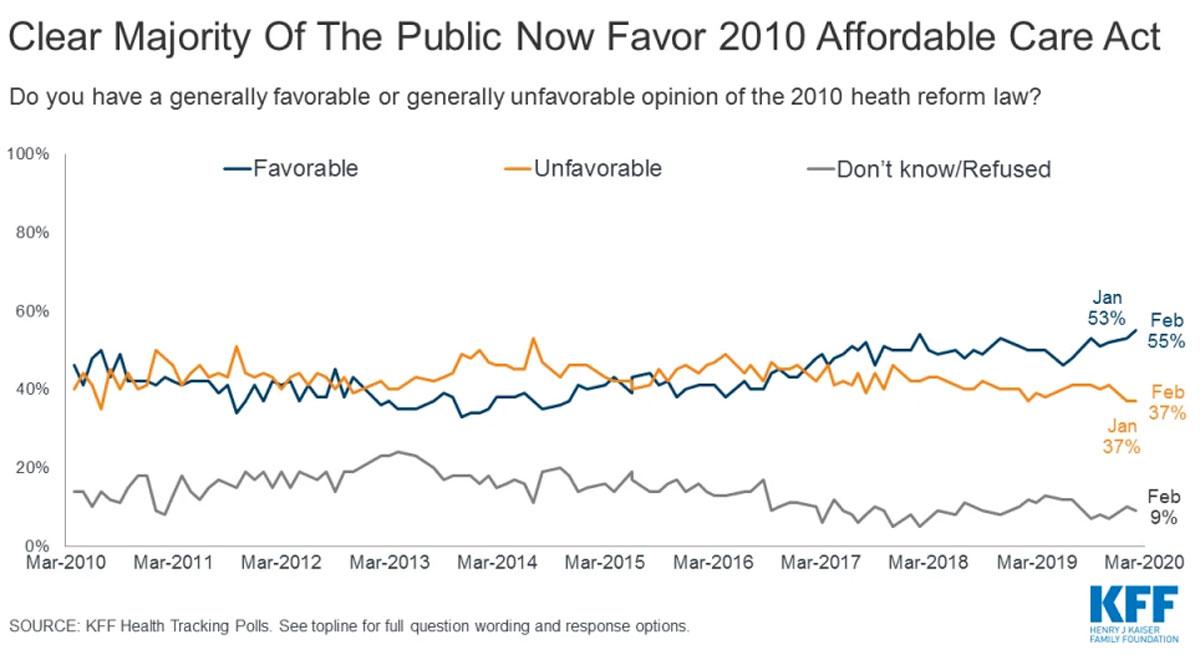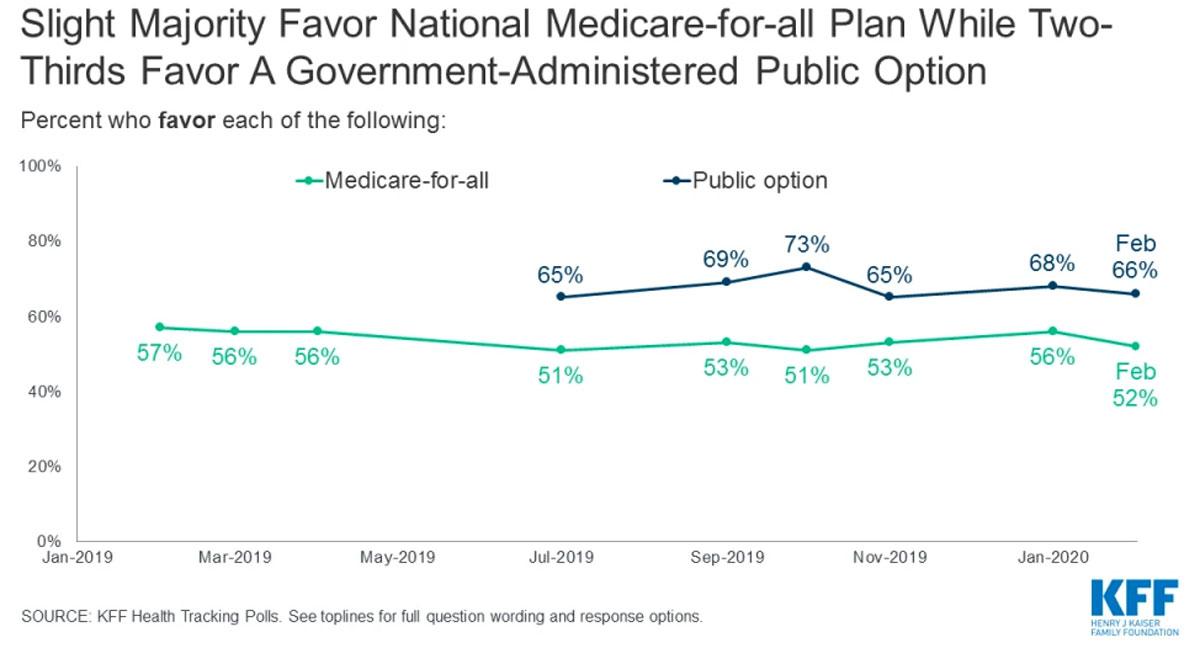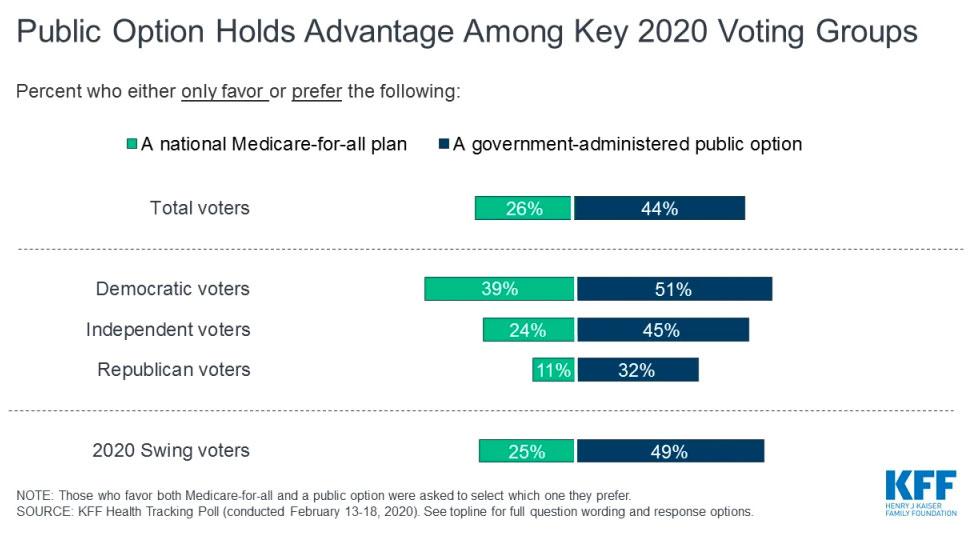Kaiser: It's the ACA, Stupid!
“The economy, stupid” is a phrase coined by James Carville in 1992. It is usually mistakenly rendered as “It’s the economy, stupid.” Carville was a strategist in Bill Clinton’s successful 1992 presidential campaign against incumbent George H. W. Bush. His phrase was directed at the campaign’s workers and intended as one of three messages for them to focus on. -- Wikipedia
The latest Kaiser Family Foundation tracking poll (considered the gold standards when it comes to national polling on healthcare policy issues) is out, and it's findings aren't terribly surprising to anyone who's been paying attention:
- The U.S. Supreme Court will decide today whether to take up Texas v. United States, which challenges the constitutionality of the 2010 Affordable Care Act (ACA). The February KFF Health Tracking Poll finds attitudes towards the ACA has hit its highest favorability since KFF began tracking opinions nearly ten years ago. The latest KFF poll finds a clear majority of the public viewing the law favorably (55%), while slightly more than one-third (37%) of the public hold unfavorable views.
This is one of the most encouraging and exasperating examples of human nature. Don't get me wrong, I'm thrilled that after ten years the ACA is finally enjoying high approval ratings (by an 18-point margin!), but it's the height of irony that this is happening right as the ACA is on the verge of being struck down entirely. A classic case of "you don't know what you've got 'til it's gone" I suppose...
For Democratic candidates, Kaiser confirms exactly what I've been shouting for a solid year now: Stop letting the "Medicare for All / Public Option" debate suck all the oxygen out of the room!
- The Affordable Care Act took center stage in the Nevada Democratic presidential debate with Vice President Biden attacking Mayor Bloomberg’s record on the ACA. Nearly nine in ten Democrats (85%) and Democratic voters (86%) view the ACA favorably and while most Republicans view the unfavorably, significantly fewer Republicans offer repealing the 2010 health reform law as their top health care issue. Voters, overall, and across party identification, prioritize other health care issues such as health care costs.
Here's the even more staggering statistic from farther down:
Three percent of Republican voters offer opposition to or repealing the ACA as their top health care issue in the most recent KFF Tracking Poll. This is a considerable decrease from the 2016 presidential election, during which three in ten (29%) Republican voters offered it as their top health care issue. It is also a decline from the 2018 midterm elections in which 18% of Republican voters mentioned opposition to the ACA or repealing the ACA as their top health care issue.
That's absolutely mind-blowing. 2016: 29%. 2018: 18%. 2020: 3%. Only THREE PERCENT of Republicans strongly want the ACA struck down EVEN AS the Trump Administration & Trump Justice Dept. are pushing for the Supreme Court to strike down the law entirely.
- Health care remains a top issue for Democratic voters, independent voters, and the crucial group of voters who haven’t made up their minds yet – swing voters. More than one-third of Democratic voters (36%) say health care is the “most important” issue in their 2020 vote choice as do three in ten independent voters and 28% of swing voters. Yet, when asked what is the one thing that will motivate them to vote in 2020, a larger share of voters offer responses related to defeating President Trump and electing a Democrat than any issue, including health care. When voters who have decided to vote for the Democratic nominee are asked what is most important when choosing a Democratic candidate, a larger share say “a candidate with the best chance to defeat President Trump” (59%) than one “who comes closest to your views on issues” (39%).
As it happens, "healthcare" and "defeating Donald Trump" go hand in hand.
As for the M4A vs. PO battle, again, as I've stated for years:
- Both a national Medicare-for-all plan and a government-administered public option continue to garner majority support in the KFF Health Tracking Polls, including large shares of Democrats who express positive attitudes towards both proposals. Yet, the public option holds the advantage over a national Medicare-for-all plan when supporters of both are forced to choose one. The public option garners more support among many key groups in the 2020 Democratic primary including swing voters (49% v. 25%).
Aside from the policy merits of one plan vs. the other, that 14-point advantage for a Public Option vs. Mandatory M4All is critically important, because that's the cushion needed to absorb the massive onslaught of attack ads by the GOP, FOX News, Brietbart, the Koch Brothers, the health insurance lobby, the hospital lobby, PhRMA and so forth.
And before anyone claims that this will only be an issue in the general election once the Democratic nominees for President, Senate, Congress, etc. are decided, guess again:
Yes, that's right: Even among Democrats, a Public Option enjoys a 12-point advantage over a mandatory, "pure" Medicare for All system.
How to support my healthcare wonkery:
1. Donate via ActBlue or PayPal
2. Subscribe via Substack.
3. Subscribe via Patreon.






